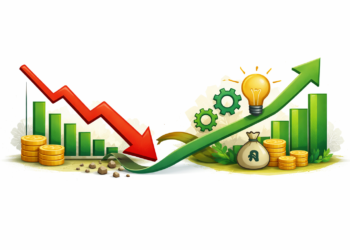
Nigeria’s Economy Expands 4.23% in Q2 2025 as Tinubu Reforms Start to Yield Fruit
Nigeria’s economy picked up speed in the second quarter of 2025, as Gross Domestic Product (GDP) growth accelerated to 4.23% year-on-year, says National Bureau of Statistics (NBS). The growth was better than 3.48% in Q2 2024 and 3.13% in Q1 2025, and it signals the start of new momentum for Africa’s largest economy.
In reaction to the figures, Presidential spokesperson Sunday Dare said the report “endorsed the reforms in all areas under President Bola Tinubu,” describing the outcome as proof that recent policy was finally beginning to yield dividends.
The NBS report attributed the growth to broad gains across sectors:
• Oil sector: Increased by 20.46%, driven by a rise in crude output to 1.68 mbpd, up from 1.41 mbpd in Q2 2024. Contribution to GDP was 4.05%.
• Non-oil sector: Increased by 3.64%, with agriculture, building, trade, telecommunication, and financial services being at the forefront. It accounted for 95.95% of GDP, an indicator of diversification.
• Agriculture: Increased to 2.82%, from 2.60% in the previous comparable period.
• Industry: Increased by 7.45%, almost double its Q2 2024 rate.
• Services: Increased by 3.94%, from 3.83% previously.
Nominal GDP increased to ₦100.73 trillion, from ₦84.48 trillion during Q2 2024, up by 19.23%. This performance was guided by the exercise of GDP rebasing, where the 2010 base year was moved to 2019, incorporating new industries like fintech, digital services, and creative industries. The rebasing brought Nigeria’s debt-to-GDP ratio down to 39.4% as of Q1 2025, under government’s target of 40%.
Public debt was at ₦149.39 trillion as of March 31, equally split between ₦78.76 trillion domestic and ₦70.63 trillion foreign borrowings, according to the Debt Management Office (DMO).
Although inflation and unemployment remain issues, the combination of the growth in oil production, sustained non-oil growth, and improved debt metrics all indicate the economy is in stable footing. If sustained, such trends can lead Nigeria toward a more stable, less perilous future, one in which natural and human resources cooperate, and in which reform builds from promising starts to sustainable change.






